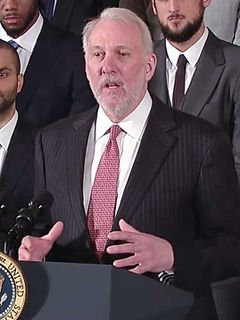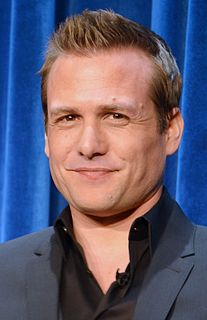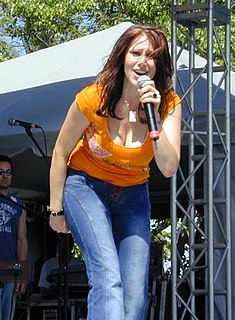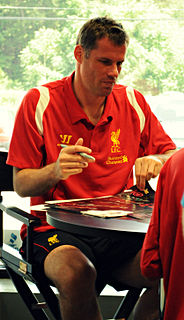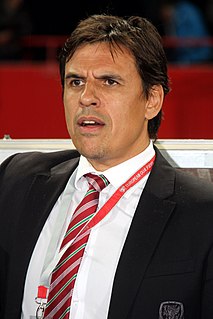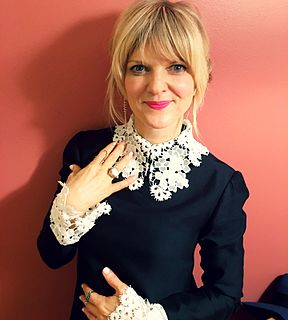A Quote by Robin Williams
I always wanted to play a big, black man, but that would cost too much make-up.
Related Quotes
Russell... I love you. I thank you so much man. You made me better. You know, Your work ethic. I always wanted to compete with you. I always wanted to pull up into the parking lot of the practice facility, And if you beat me there, I was always upset. I always wanted to outwork you. And you set the bar. You set the tone. And thank you so much man. Thank you. You had a big piece of this MVP trophy. You're an MVP caliber player It's a blessing to play with you man.
I would tell young people to start where they are with what they have and that the secret of a big success is starting with a small success and dreaming bigger and bigger dreams, I would tell them also that a young Black woman or a young Black man can't dream too much today or dare too much if he or she works hard, perseveres and dedicates themselves to excellence.
For my prom, I was so fancy, I got t a suit tailored. I wanted a three-piece suit. I thought it would be cool to wear all black - black shirt, black tie, I figured it would be the coolest thing I've ever done. That was my first suit. I put the suit on two years later and it was so big on me and absurd and didn't fit. I still have it. I won't throw it out. It's too fun. It reminds me where I come from. Actually, I have an evolution of suits in my closet. It starts with that one and goes up to the suits that I get to have now.
It's risky to allow radiation to constantly go up into the atmosphere. The main criticism of this approach of entombing it is that it would cost too much, involve too many resources and people. But think of the cost of having all the crops impounded by the government, all the milk being thrown into the river, people's livelihoods destroyed.
So much of the game is mental, and that's one thing that I've always wanted to be good at. That if I miss a shot or make a bad play, to never let your opponent see that you are in duress or upset - that they've won in any way. So if I make a big game-time bucket or if I miss a shot, you'll see the same mannerisms. I move on to the next play.
In the 1970s you would have had lots of black goalkeepers and defensive midfield players but never made it professionally because the perception was, 'You don't think too much, you can't play in positions of responsibility so you play on the wing or up front.' Lots were lost to the game because of the perception.



